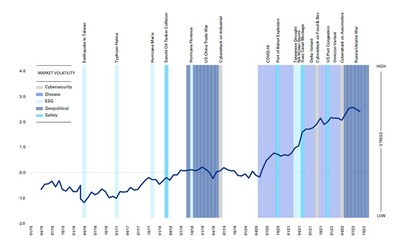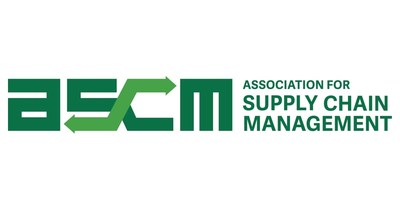TMCnet News
New Supply Chain Stability Index from ASCM and KPMG Shows Level of Stress in Supply Chains Has More Than Doubled in the Past Two YearsThe tool analyzes key trends to support resilient and confident supply chains CHICAGO, Sept. 20, 2022 /PRNewswire/ -- The Association for Supply Chain Management (ASCM) and KPMG LLP today announced the launch of a new monthly Supply Chain Stability Index that provides indicators we view as helpful in assessing how well the U.S. supply chain deals with the ups and downs of market volatility. The index is supplemented by an inaugural report issued today which concludes that in the past two years, the level of stress in supply chains has more than doubled thanks to a steady stream of disruptions, risks, and regulatory requirements and that this increased frequency of disruptions will persist. The Supply Chain Stability Index uses machine learning and statistical models fueled by market-level supply chain data to provide insights into performance variability and project an outlook for the near-term. Moving forward, the index will be refreshed with indicators of stability for U.S. supply chains on a periodic basis providing organizations with a perspective on how industries perform in the midst of volatility and considerations for assessing areas of their supply chain that are adequately resilient and those that require more stabilization. "Crisis mode has become the new normal," said ASCM CEO Abe Eshkenazi, CSCP, CPA, CAE. "What we're seeing is that ongoing market volatility continues to impair supply chain performance. Which is why there is a need to not only improve service, cost and inventory, but to stabilize it. And when it comes to creating resilient supply chains, one thing we do know — and have confirmed with the index — is that talent makes the difference. If we're going to solve this, we need the right people." The report identifies three key drivers of supply-chain stress:
"The increased risks and disruptions in recent years, as well as the changes in regulatory requiremets, have generated unprecedented volatilities in the supply chain," said Brian Higgins, Partner, U.S. Customer & Operations Practice Leader, Commercial Industries, KPMG LLP. "To visualize the much-needed stability and provide data-driven insights on the behavior of supply chains, KPMG and ASCM developed the Supply Chain Stability Index. This index will assess the stability of U.S. supply chains on a periodic basis and serve as a barometer for the greater supply chain." The algorithms used to create the index are underpinned by 14 years of data representing nearly 30 variables and key performance indicators (KPIs) that describe end-to-end performance of supply chains across the U.S. The three major factors measured that determine the primary causes of variance include logistics, capacity and supply. "When it comes to supply chains, there's no crystal ball — but this index will come close by illuminating stresses and using data to measure volatility drivers, so that supply chain professionals can make more informed decisions on where they need to focus their efforts to increase resilience," said ASCM Executive Vice President of Strategy and Alliances Douglas Kent, who is also one of the lead authors of the launch report. To learn more about the Supply Chain Stability Index, and to sign up to receive monthly insights and quarterly reports, visit this page. About ASCM The Association for Supply Chain Management (ASCM) is the global pacesetter of organizational transformation, talent development and supply chain innovation. As the largest association for supply chain, ASCM members and worldwide alliances fuel innovation and inspire accountability for resilient, dynamic and sustainable operations. ASCM is built on a foundation of world-class APICS education, certification and career resources, which encompass award-winning workforce development, relevant content, groundbreaking industry standards and a diverse community of professionals who are driven to create a better world through supply chain. To learn more, visit ascm.org. About KPMG LLP KPMG LLP is the U.S. firm of the KPMG global organization of independent professional services firms providing audit, tax and advisory services. The KPMG global organization operates in 144 countries and territories and has more than 236,000 people working in member firms around the world. Each KPMG firm is a legally distinct and separate entity and describes itself as such. KPMG International Limited is a private English company limited by guarantee. KPMG International Limited and its related entities do not provide services to clients. KPMG is widely recognized for being a great place to work and build a career. Our people share a sense of purpose in the work we do, and a strong commitment to community service, inclusion and diversity, and eradicating childhood illiteracy. Learn more at www.kpmg.com/us. Media Contacts Mindy Weinstein Andreas Marathovouniotis
SOURCE ASCM 
|


